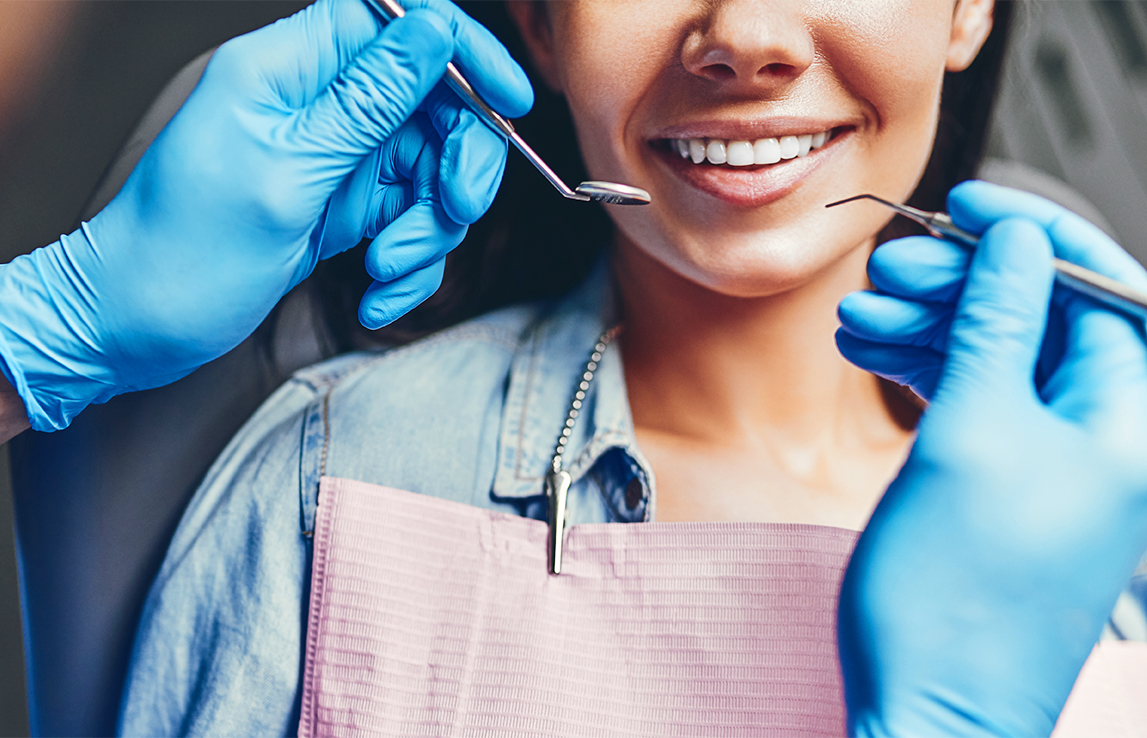
How Often Can You Get Your Teeth Whitened Without Damaging Them?
Do you want to maintain a jealous-inspiring, movie-star smile on your face? Upkeep for flawless pearly teeth is little; it’s a tiny thing to pay for a sparkling grin.
Teeth whitening is a popular cosmetic dental procedure that many people opt for to achieve a brighter, whiter smile. However, one of the most common questions people have is, “How often can you get your teeth whitened without damaging them?”
You’ve come to the perfect site if you’re seeking solutions to your teeth-whitening query. To find out how to maintain your teeth and what you need to do to keep them shining and brilliant, keep reading.
How does Teeth Whitening work?
Using hydrogen peroxide or gel with a carbamide peroxide base on the surfaces of discolored teeth is how teeth are whitened. Brighter, whiter teeth are produced as a consequence of the bleaching process, which breaks the stains and dilutes the color. Remember that bleaching won’t remove stains from dentures, crowns, dental veneers, or other restorations.
When do you need Teeth Whitening?
Dentists in general frequently advise teeth whitening when teeth are extremely discolored, which is one of the most evident situations. The enamel of many people’s teeth has mild to severe discoloration, which can range in intensity. Yet when staining becomes out of hand, there can be a terrible aspect that makes smiling challenging.
A general dentist would probably suggest professional teeth whitening to remove and eliminate stains if and when a person reaches a severe staining stage. In certain cases, the patient would need to go through many teeth-whitening sessions to get all of the stains out.
How often Teeth Whitening Treatments are recommended
Having your teeth whitened is usually a multi-visit process. In a perfect world, a single teeth-whitening treatment would be all that was ever needed to ensure that a person’s teeth would always be pearly white and in good health.
Sadly, that’s not how it works. Like any other part of the body, they require maintenance. How often should one bleach their teeth?
In general, it’s a good idea to visit your dentist for teeth-whitening treatments around once every three months, or once every quarter. This is true even if you haven’t observed a significant dulling of your smile.
In this manner, the dentist may examine your teeth and determine whether any issues might be concealed by the whitening results. After having teeth whitening done, it may occasionally be more difficult to detect cavities or tooth damage. The dentist also can retouch your teeth-whitening procedure to give you an even more radiant smile!
This is the best way to ensure that your smile is both attractive and healthy.
How to keep your Teeth’s color after Getting them Whitened
If you want to safeguard your teeth in between appointments, there are a few practices you can do to keep your treatment looking like you just left the dentist’s office until you can return for a new one.
Beware of Foods and Drinks that Stain
Many meals and beverages, even those that aren’t necessarily unhealthy for you, might stain your teeth. While you don’t have to fully avoid these products, it’s recommended to restrict your consumption and stay hydrated while doing so.
Such foods are as follows:
- Coffee.
- Red wine.
- Berries.
- Marinara sauce
- Some tea.
Such foods are OK in moderation. Don’t eat too much of them, and just rinse thoroughly afterward. Coffee is a leading cause of teeth discoloration, so take care!
Avoid Smoking
This may appear to be obvious, but it is critical! Tobacco use is harmful to your dental health. It not only deteriorates the general condition of your mouth and teeth, but it also reduces their overall attractiveness.
Smoking frequently causes teeth to yellow and completely reverses the effects of whitening. If you want to keep your teeth white, now is a great time to quit smoking.
Have a Straw with you
Carrying reusable straws with you when you go out is another excellent way to avoid injury from dangerous beverages.
While you probably won’t be sipping wine via a straw (even though you can), doing so for sugary beverages can help preserve your enamel as well as keep liquids with artificial colors away from your teeth.
You don’t have to stop drinking your favorite sugary beverages, but preventing damage is crucial if you’d like to keep your teeth as white as possible for as long as possible.
After Each Meal, brush your Teeth
There will still be occasions when you want to drink or eat certain items that stain your tongue, even if you are diligent about your diet. Most of them are common, and some of them are beneficial.
Maintaining a routine for brushing your teeth is a terrific method to prevent stains or harm from eating or drinking. It’ll also keep you feeling rested so you can carry out the rest of your day. Even
when you’re not at home, it might be useful to keep a toothbrush and floss on hand. If you can’t, some mouthwash can do it in a hurry. Between dental appointments, brushing your teeth will keep
your smile bright and safeguard your oral health.
Or you can contact us using one of these other means:
- Call Us: 212.685.5133 or 212.421.5445
- Contact Us by Submitting This Contact Form
Source
Lamberti, B. (2023, February 2). How Long Does Teeth Whitening Last? | Abington Center. Abington Center for Cosmetic & Family Dentistry. https://abingtoncenter.com/how-long-does-teeth-whitening-last/
Taşkın, D. C. (2022, April 12). Types of teeth whitening: what’s the best one for you? Find out here! Dental Treatment Turkey. https://dentfixturkey.com/types-of-teeth-whitening/
Dentistry, T. (2020, September 11). Sensitive Teeth After Whitening | Triangle Dentistry. Triangle Dentistry. https://triangledentistry.com/sensitive-teeth-after-whitening/
Side Effects of Teeth Whitening | Byford Smiles. (2001, August 22). Byford Smiles. https://byfordsmiles.com.au/side-effects-of-teeth-whitening/